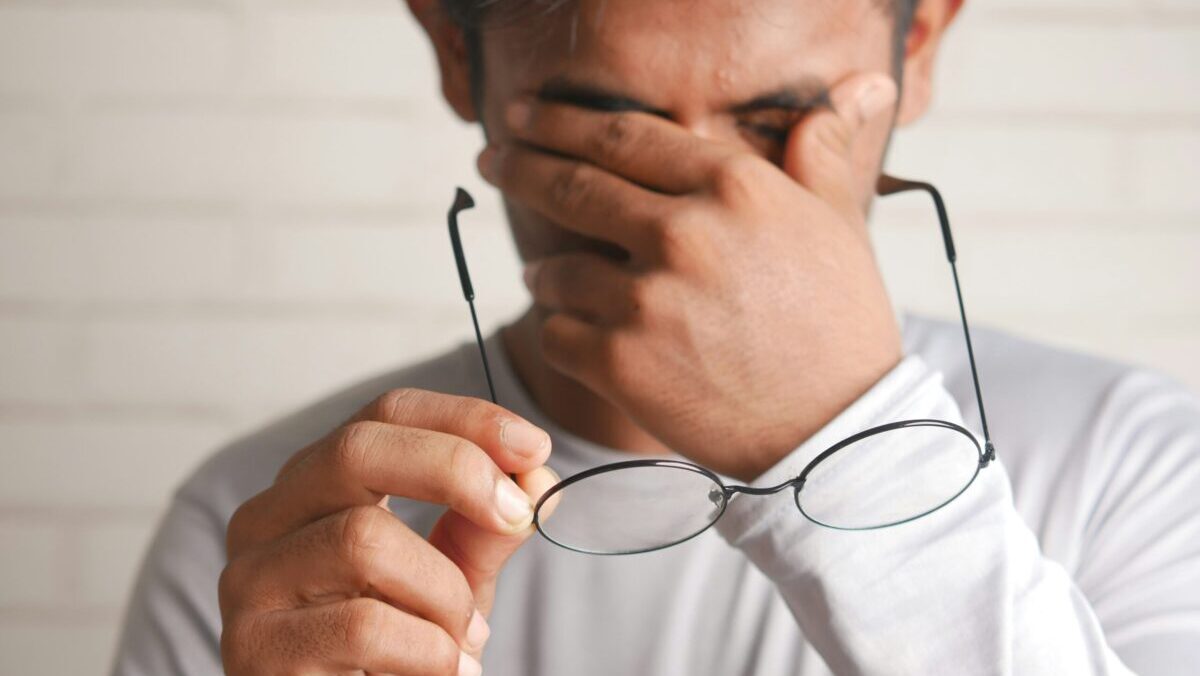I started wearing glasses at age 5 when I failed my kindergarten vision test, so eye care has always been part of my life. But even if you are young or have never had vision problems, it is important to care for the health of your eyes.
In addition to routine eye exams, here are some general recommendations for making sure your eyes stay healthy for the long-term.
In your 20s and 30s, focus on prevention. Wear sunglasses that block 100% of ultraviolet radiation (UVA and UVB rays) when you are outdoors and maintain a healthy lifestyle. This includes eating a balanced diet rich in fruits, vegetables, antioxidants and omega-3 fatty acids, staying hydrated, getting regular exercise, managing stress and avoiding smoking.
Eye strain is a growing problem for people of all ages due to the significant amount of time we spend on computers, smartphones and other digital devices. To help prevent eye strain, take regular breaks from screens and use the 20-20-20 rule: Look at something 20 feet away for 20 seconds every 20 minutes.
Even if you don’t currently wear glasses or contacts, schedule a comprehensive eye exam with an optometrist or ophthalmologist at least once every two years. This exam can detect refractive errors (like nearsightedness, farsightedness or astigmatism), as well as eye diseases or conditions that may not present symptoms in the early stages, such as glaucoma or macular degeneration.
If you wear glasses, regular vision testing will help you maintain visual acuity. If you notice any changes in your vision between appointments, such as blurred vision, difficulty focusing or eye strain, schedule an appointment with an eye care professional promptly.
Physiological changes
As you enter your 40s, your eyes begin to change. Many adults develop presbyopia, or age-related farsightedness, which makes it hard to focus clearly on close objects (like books and phone screens). Cataracts may begin to form as the proteins in the lens of your eye naturally start to break down.
Continue to take proactive steps to keep your eyes as healthy as possible and schedule a comprehensive eye exam to assess and monitor these and other eye health conditions and to get the appropriate corrective lenses for your vision and lifestyle.
Be aware of the symptoms of retinal detachment, a painless but urgent medical emergency in which the retina, a thin layer of tissue at the back of the eye, pulls away from its normal position causing loss of oxygen-rich blood to the cells in the eye. Symptoms of retinal detachment include reduced vision, the sudden appearance of “floaters” (dark spots or specks that seem to “float” in your vision), flashes of light or a curtain-like shadow that clouds your field of vision. If you experience any of these symptoms, go to the ER or contact an ophthalmologist right away.
For adults over 50, routine eye care becomes critical to maintain good vision and detect age-related changes or eye diseases early. Schedule a comprehensive eye exam each year or as recommended by your eye care provider.
During the exam, review your medications with your doctor, as certain medications may have side effects that can affect your vision or eye health. If you experience discomfort in your eyes, such as a scratchy feeling, stinging, burning, sensitivity to light or red eyes, your doctor may prescribe treatment for dry eyes, a condition that is more common after age 50.
By prioritizing regular eye care and incorporating healthy practices into your routine, you can do your part to help preserve your vision and maintain healthy eyes as you age. If you have any concerns or notice changes in your vision, consult with your eye care professional promptly for evaluation and appropriate management.
Options for eye expenses
No vision benefits or insurance? Here are five options that might help with eye care expenses for you and your family:
- If your employer offers it, take advantage of a Flexible Spending Account (FSA) or Health Savings Account (HSA), either of which can be used to pay for eye care and other medical expenses.
- Ask your provider or local health department about vision discount plans, community health centers, nonprofit organizations or others programs you may be eligible for.
- Ask about payment plans.
- Membership clubs like Costco and Sam’s Club often offer discounted eye care services and products to their members.
- Consider using mail order companies that sell glasses and contacts at a discount.
Click below to learn how Mission:Dignity helps retired pastors and their widows afford the necessities of life, including eyeglasses.





Share with others: